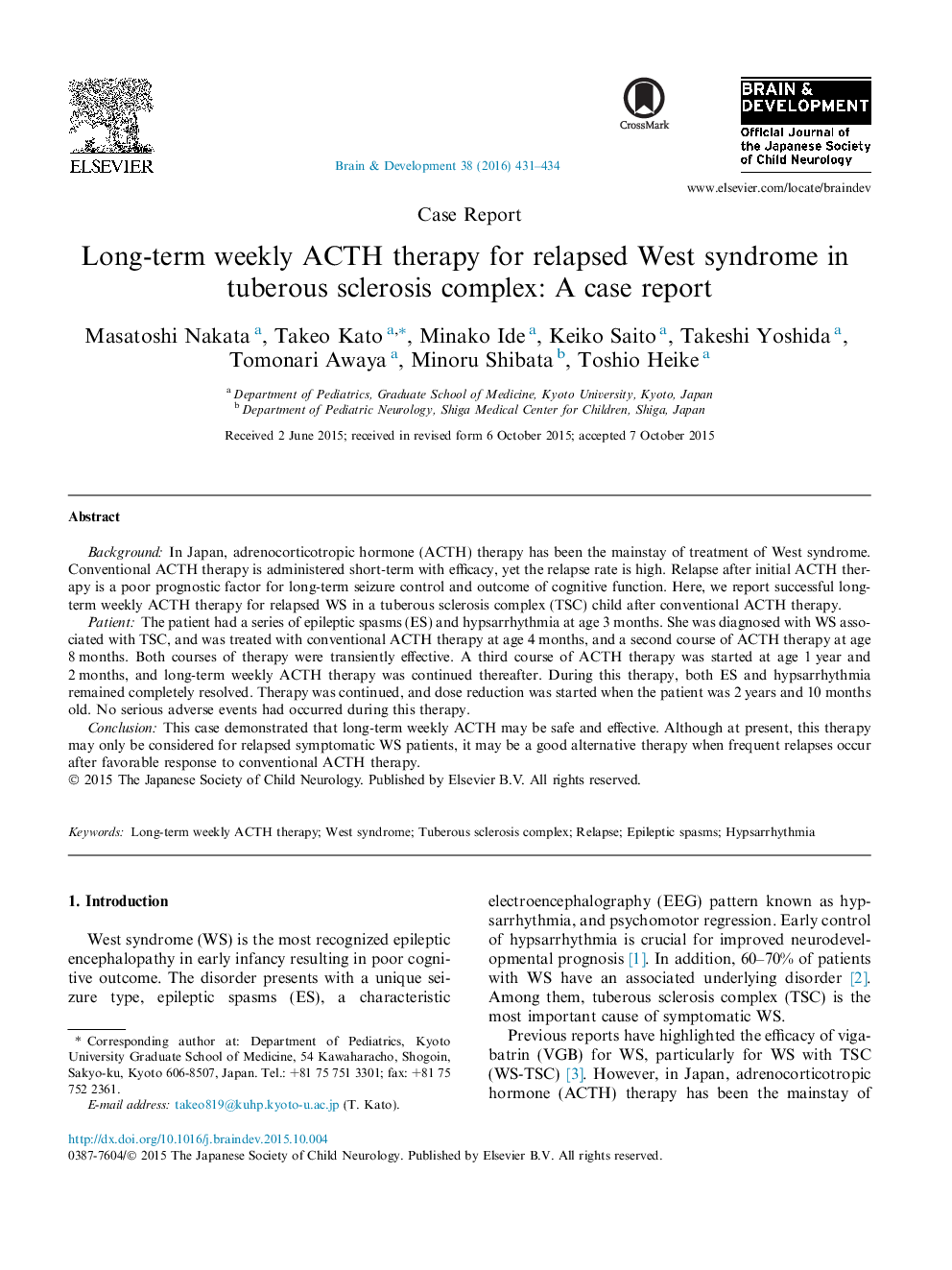| Article ID | Journal | Published Year | Pages | File Type |
|---|---|---|---|---|
| 3036521 | Brain and Development | 2016 | 4 Pages |
BackgroundIn Japan, adrenocorticotropic hormone (ACTH) therapy has been the mainstay of treatment of West syndrome. Conventional ACTH therapy is administered short-term with efficacy, yet the relapse rate is high. Relapse after initial ACTH therapy is a poor prognostic factor for long-term seizure control and outcome of cognitive function. Here, we report successful long-term weekly ACTH therapy for relapsed WS in a tuberous sclerosis complex (TSC) child after conventional ACTH therapy.PatientThe patient had a series of epileptic spasms (ES) and hypsarrhythmia at age 3 months. She was diagnosed with WS associated with TSC, and was treated with conventional ACTH therapy at age 4 months, and a second course of ACTH therapy at age 8 months. Both courses of therapy were transiently effective. A third course of ACTH therapy was started at age 1 year and 2 months, and long-term weekly ACTH therapy was continued thereafter. During this therapy, both ES and hypsarrhythmia remained completely resolved. Therapy was continued, and dose reduction was started when the patient was 2 years and 10 months old. No serious adverse events had occurred during this therapy.ConclusionThis case demonstrated that long-term weekly ACTH may be safe and effective. Although at present, this therapy may only be considered for relapsed symptomatic WS patients, it may be a good alternative therapy when frequent relapses occur after favorable response to conventional ACTH therapy.
